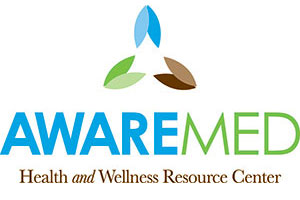Dysphagia Treatment Bristol, VA

Do you have difficulty swallowing, voice hoarseness, or acid reflux not related to another medical condition? It could be dysphagia, or difficulty swallowing.
Swallowing difficulties can sometimes happen for no reason, but recurrent dysphagia can be caused by conditions like stroke and dry mouth. It's more common in elderly people and in infants, but it can affect people of all ages.
Lifestyle changes and surgical procedures can be used to treat the different types of dysphagia. To speak with a Bristol dysphagia specialist today, call (423) 482-8711 or contact Dr. Dalal Akoury online.
What are the symptoms of dysphagia?
Symptoms of dysphagia include:
- pain while swallowing (odynophagia)
- the inability to swallow
- choking while eating
- coughing or gagging when swallowing
- drooling
- hoarse voice
- bringing food back up (regurgitation)
- stomach acid backing up into the throat
- heartburn
- feeling of food being stuck in your throat or chest
Those with dysphagia may have a higher risk of dehydration or malnutrition, losing weight, choking on food, and pneumonia from accidentally inhaling saliva or food particles (aspiration).
What causes dysphagia?
Dysphagia originating in the mouth (oropharyngeal dysphagia) may be caused by:
- neurological disorders like multiple sclerosis
- neurological damage from a stroke or spinal cord injury
- a small pouch that forms in your throat and collects food (pharyngoesophageal diverticulum)
- gaps (clefts) in the palate and lip to nose area (cleft lip and palate)
- xerostomia (dry mouth)
Swallowing difficulties due to issues in the throat (pharyngeal dysphagia) may be caused by:
- Parkinson's disease
- stroke
- amyotrophic lateral sclerosis: your spinal and brain nerves progressively lose function
Dysphagia originating in the esophagus (esophageal dysphagia) may be caused by:
- achalasia: your lower esophageal muscles (sphincter) doesn't relax, causing regurgitation
- diffuse spasm: high-pressure, poorly coordinated esophageal contractions
- esophageal stricture: a narrowed esophagus
- eosinophilic esophagitis: heightened levels of eosinophils (a type of white blood cell) that attack your esophagus
- Schatzki rings: a thin area of narrowing in the sphincter
- scleroderma: the stiffening, hardening, and weakening of your sphincter
- myasthenia gravis: the muscles under voluntary control become easily tired and weak due to nerve issues
As well as:
- tumors or scar tissue caused by GERD
- food blocking your esophagus
- radiation treatment
- enlarged lymph nodes
How is dysphagia diagnosed?
There are many ways to diagnose dysphagia. After a physical exam your healthcare provider may perform these tests:
- barium X-ray: drinking a barium solution to coat the inside of your esophagus so it can appear on an x-ray
- dynamic swallowing study: capturing images of barium-coated foods traveling through your digestive tract
- endoscopy: to see your esophagus
- fiberoptic endoscopic examination of swallowing (FEES): a scope is inserted through your nose to view you swallowing
- esophageal muscle test (manometry): inserting a small tube into your esophagus to measure its' muscle contractions as you swallow
- esophageal pH (acid) study: a thin catheter is inserted into the esophagus through the nose to measure acid reflux
Imaging scans like a CT scan or an MRI scan can also be used.
How is dysphagia treated?
Dysphagia treatment usually involves lifestyle changes or surgery to improve swallowing, reduce risk of aspiration, and improve nutritional intake. Results of these treatments will vary from patient to patient depending on age, genetics, condition severity, the type and cause of your swallowing disorder, as well as environmental and health factors.
Lifestyle changes and nutritional remedies for dysphagia may include:
- eating smaller, more frequent meals
- cutting food into smaller pieces
- eating more slowly
- chewing your food thoroughly
- learning swallowing techniques from a speech or language therapist
- avoiding alcohol, tobacco, and caffeine
- transitioning to a soft or pureed diet, free of sticky foods like peanut butter
- treat overgrowth of intestinal microflora which leads to gastric complications
To get beyond soothing the symptoms and treat the root causes, a nutritionist will:
- check your intestinal microflora – imbalances can lead to many complications
- supplement with hydrochloric acid (HCL), the stomach's main digestive acid
- test for food sensitivities/allergies that may be at the root of your symptoms
- analyze dietary and stress-inducing habits that may be at the root of symptoms
GERD-related dysphagia symptoms are often treated with medications which neutralize stomach acid or block its production. Since they only treat symptoms, these medications can cause dependency:
- corticosteroids if you have eosinophilic esophagitis
- muscle relaxants for esophageal spasms
- H2 blockers like nizatidine (Axid)
- proton pump inhibitors like esomeprazole (Nexium)
- nitrate drugs like isosorbide dinitrate (Isordil) or calcium-channel blockers like nifedipine (Procardia) to treat achalasia
- botulinum toxin (botox) can also paralyze esophageal muscles to reduce contractions if they become stiff
There is also evidence to suggest that treatments that involve the use of electrical stimulation may be a good treatment for dysphagia caused by MS.1
For extreme cases, surgical procedures that may help treat dysphagia include:
- esophageal dilation: this gently stretches and expands the width of your esophagus
- tumor removal: this clears the path of your esophagus
- laparoscopic Heller myotomy: this treats achalasia by cutting your sphincter
- stent placement: a metal or plastic tube (stent) is used to open an esophageal narrowing or blockage
- a feeding tube: this bypasses your swallowing mechanisms to prevent malnutrition
Reserve Your Appointment Now
There are many potential treatments for symptoms and causes of dysphagia to reduce risk of choking and diseases like pneumonia.
To speak with a dysphagia specialist today in Bristol, call (423) 482-8711 or contact Dr. Dalal Akoury online.
Sources:
1. Alali, Dalal, Kirrie Ballard, Hans Bogaardt. "Treatment Effects for Dysphagia in Adults with Multiple Sclerosis: A Systematic Review." Dysphagia 31.5 (2016): 610-618. Web. 13 July 2018.
AWAREmed Health and Wellness Resource Center
Address
1604 Lamons LaneSuite 202
Johnson City, TN 37604
(423) 482-8711
www.awaremed.com
Hours
Mon:
9:00 am - 5:00 pm
Tue:
9:00 am - 5:00 pm
Wed:
9:00 am - 5:00 pm
Thu:
9:00 am - 5:00 pm
Fri:
9:00 am - 5:00 pm


